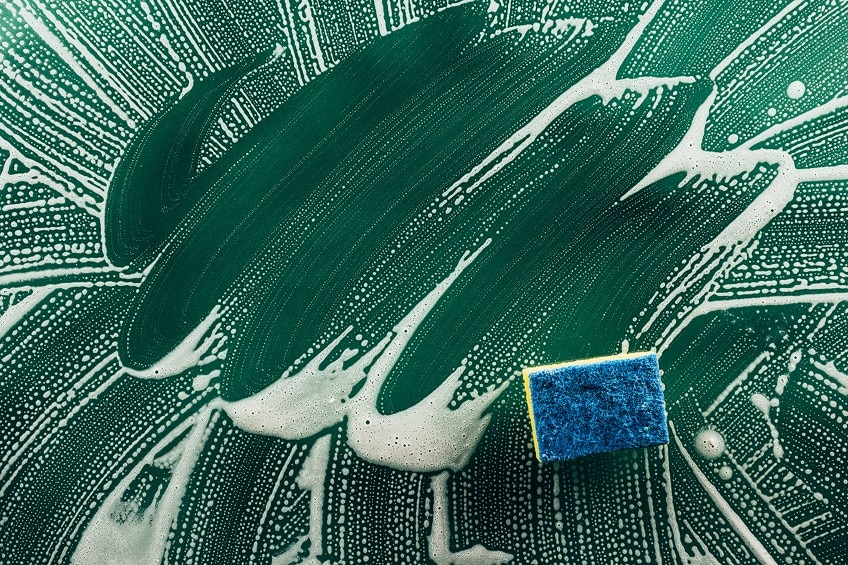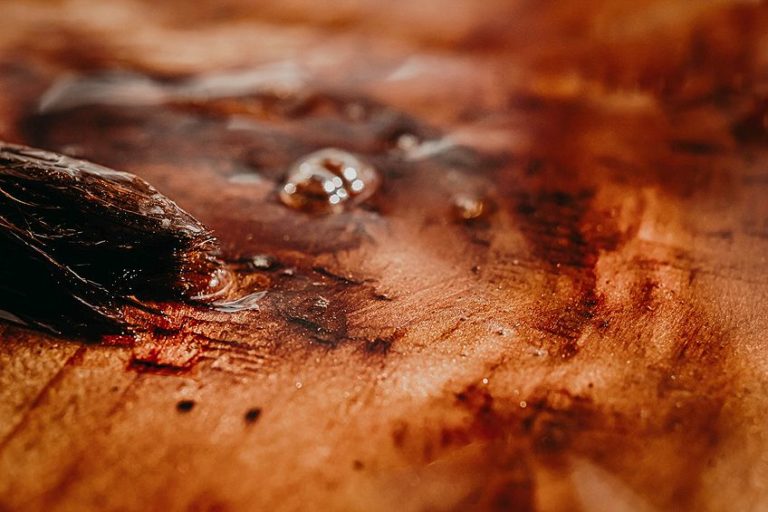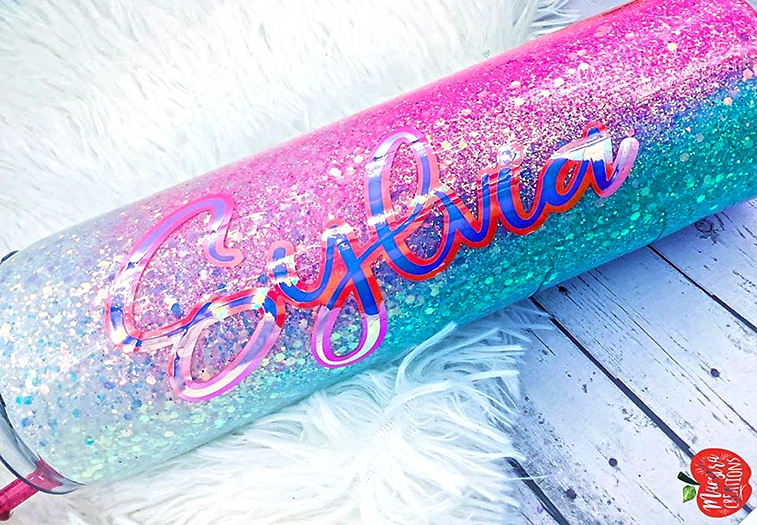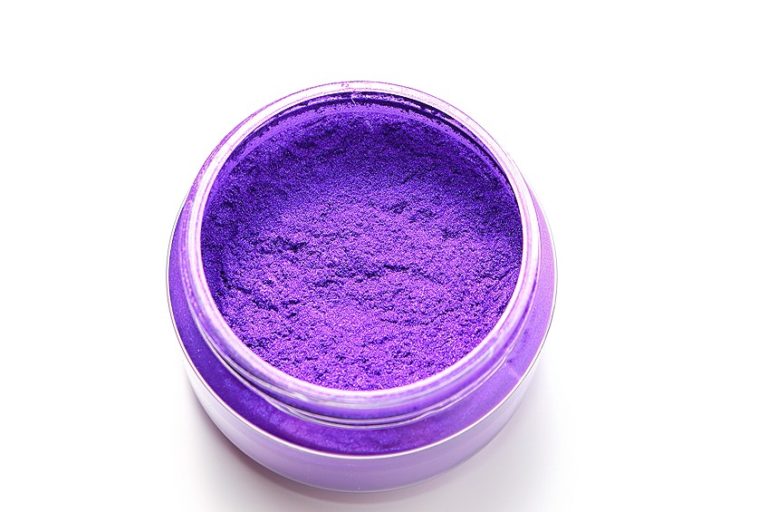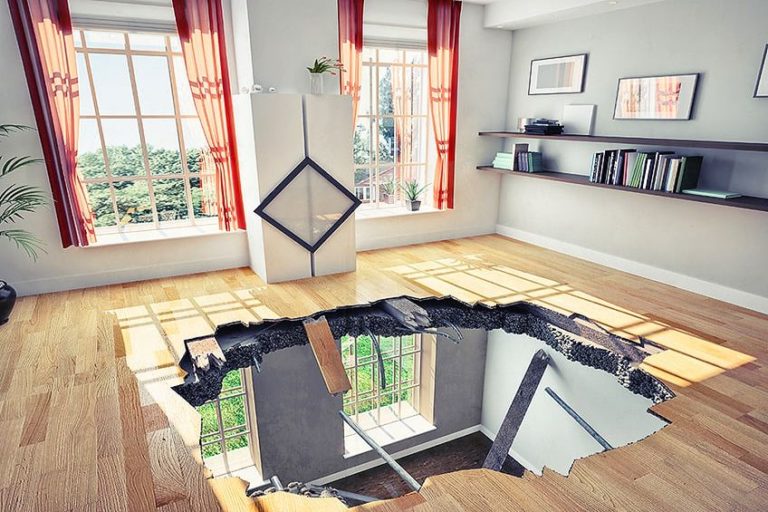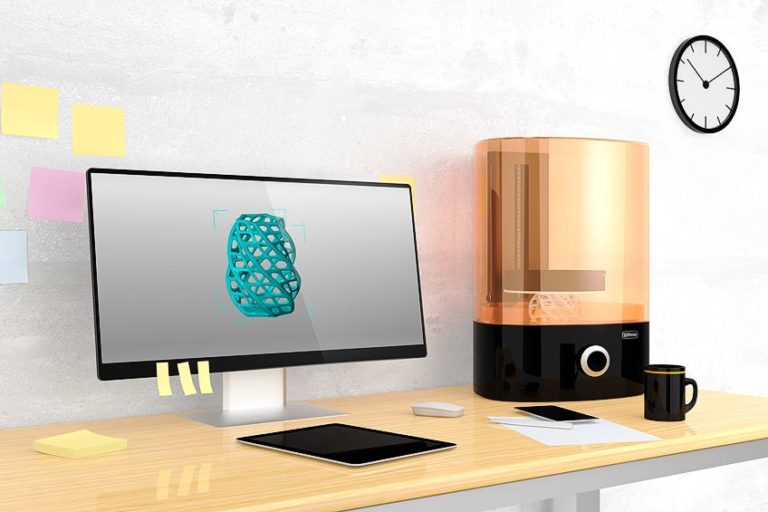How to Clean Epoxy Floor – A Guide on Epoxy Floor Maintenance
This post may contain affiliate links. We may earn a commission from purchases made through them, at no additional cost to you.
Using an epoxy coating to cover your flooring provides you with a durable and resilient surface. It can be used in warehouses, high-traffic hallways, walkways, garage floors, and sunrooms. Also, should you have an area where large tools and machinery are used, the resilient epoxy surface is a great flooring option. Diluted ammonia is an amazing cleaning solution to use on epoxy floor coating. You simply need to add 2-3 ounces of ammonia to a gallon of hot water, and then use a microfiber mop to apply it directly to the floor.
Keeping Your Epoxy Floor Clean
It is important to try to ensure that all dirt or sand is removed from the floors regularly. While epoxy floors are very hardy, they do begin to show wear and tear over time. This is particularly so if you are moving vehicles or machinery on and off the floor, as this can cause any dirt or sand to scratch the epoxy flooring and become embedded.
The best option to keep the floor clean is to use a shop vacuum that has a soft brush head attachment. The amount of dirt and grit that is tracked in will determine how often you will need to vacuum. Ensure that you clean any dust or grit off the floor before you move any heavy machinery.
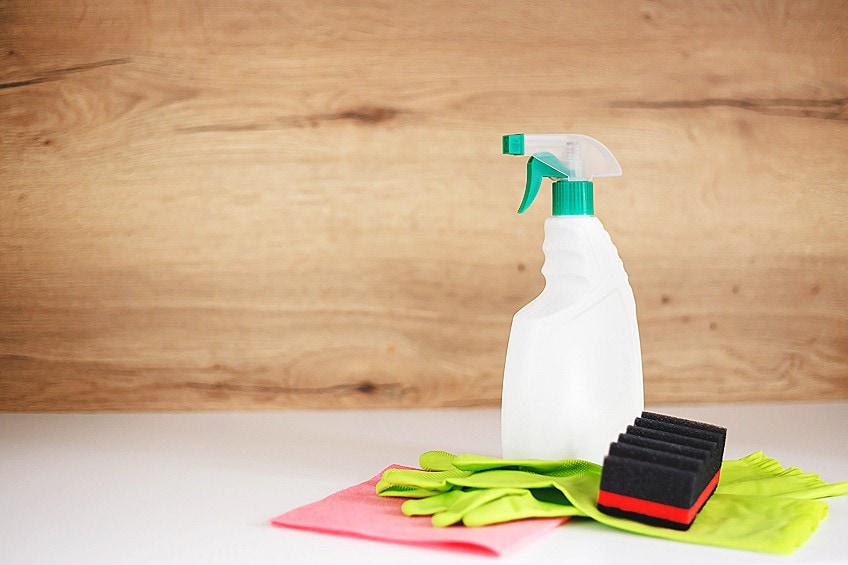
Spot Cleaning
From time to time, you will need to sweep or vacuum a small portion of the floor where something has been tracked in or spilled. You can use the shop vacuum to clean up the liquid as well any grime or dirt. After this you will need to clean the area with warm water and a mop.
An advantage of epoxy floors is that they are very water-resistant and can be cleaned with ease.
Heavily Soiled Epoxy Floors
The easiest way to clean dirt from epoxy floors is to perform the following steps:
- Firstly, vacuum and sweep the area with care. Then remove any larger items so that you can get access to all parts of the floor. Only perform the next step once you are sure that you have removed all forms of grit, grime, or surface dirt.
- Now, you will want to clean away the tougher, built-up dirt. You can use a hard foam mop and some warm or hot water for this.
- Give the floor a second and final mopping. Use a clear water-and-ammonia mix at a ratio of one gallon of hot water to 2-3 ounces of ammonia.
Stains
Occasionally, there will be stains such as rust on your epoxy floor. These stains will require a light scrubbing with a soft deck brush or kitchen scrubbing sponge and some warm water. Avoid having to use any harsh chemicals or steel wool, as they are too abrasive.
Alternatively, you can use a light scrubbing pad or brush and soft scrub. Make sure that you never use any cleaning compounds that contain citrus, acid, or vinegar, as they will unfortunately break down the epoxy catalyst.
Oils and Chemicals
Use a paper towel or shop towels to wipe up any oil, antifreeze, and other car-related chemicals, ensuring that you dispose of it properly. You will need to clean up any car spills immediately; do not allow them to sit on the epoxy floor surface for an extended period of time.
Something like engine oil can be potentially hazardous to epoxy flooring. Spilled substances that are left for too long can damage your epoxy flooring, especially spilled household cleaners, gas, any abrasive liquids, or paint. Wipe any such spills up with a paper towel or shop towels immediately.
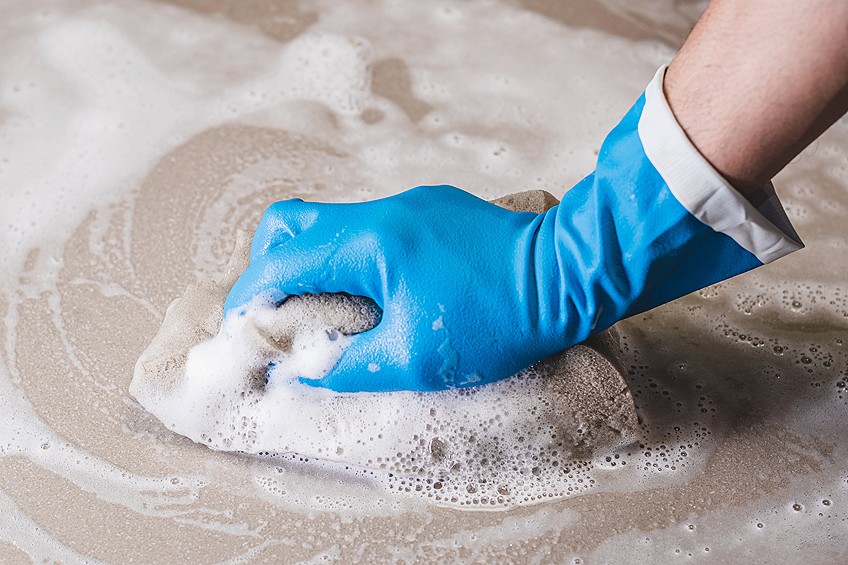
Tire Marks
To remove any tire marks from an epoxy coated floor, you will first need to soak the affected area with a concrete degreaser or a good cleaner. Once it has been applied, leave it on for a few minutes. You can then gently scrub at the marks using a brush that has stiff nylon bristles.
If you tackle the dirt as soon as possible, it will be easier to remove. The longer the marks are allowed to build upon the floor’s surface, the more difficult it will be to remove them. If you plan to store a vehicle that will be sitting for a long time in the garage, we suggest that you place a piece of cardboard under each tire to help protect the floor.
Using Walk-Off Mats on Entry
It is a good idea to place a walk-off mat at the entrance of your garage. In doing so, you will ensure the majority of the moisture and dirt from the bottom of your shoes will be decreased and removed when you enter the garage. Over winter months, you can replace the regular mat with one that is longer.
Cleaners to Avoid
Do not use vinegar or any form of citrus cleaners to clean your garage floor. These particular forms of cleaners contain acid. Acid can slowly work away at the epoxy finish and de-gloss the floor over time. You should also refrain from using cleaners with soap in them, as this can result in creating a hazy film on the surface and leaving streak marks, thus decreasing the overall shine of the finish. A soapy floor can also make the surface very slippery when it gets wet.
Steam Cleaning Epoxy Floors
Steam cleaning is a wonderful method to clean hard floors, as it can lift tough marks from the likes of grease that have been left on the floors. Steam cleaning will leave the floors shining when done. Epoxy flooring will always maintain its shine, so it does not need to be steam cleaned, although this will do it no harm.
Waxing Epoxy Floors
The glossy finish you find on an epoxy floor means that it is not necessary to wax the floors regularly. If you find that your epoxy painted floors may have lost their overall luster, you can then apply some coats of wax to shine your floors and protect them. Remember that high-traffic areas will require more coats of wax than the other areas.
Pressure Washing Epoxy Floors
Newly installed epoxy flooring requires no maintenance. If your epoxy floor becomes very dirty, you can choose to mix up some dishwashing liquid with water and use this to wash down the floors with a garden hose. It is not necessary to pressure wash your floors, but you can do so if you wish.
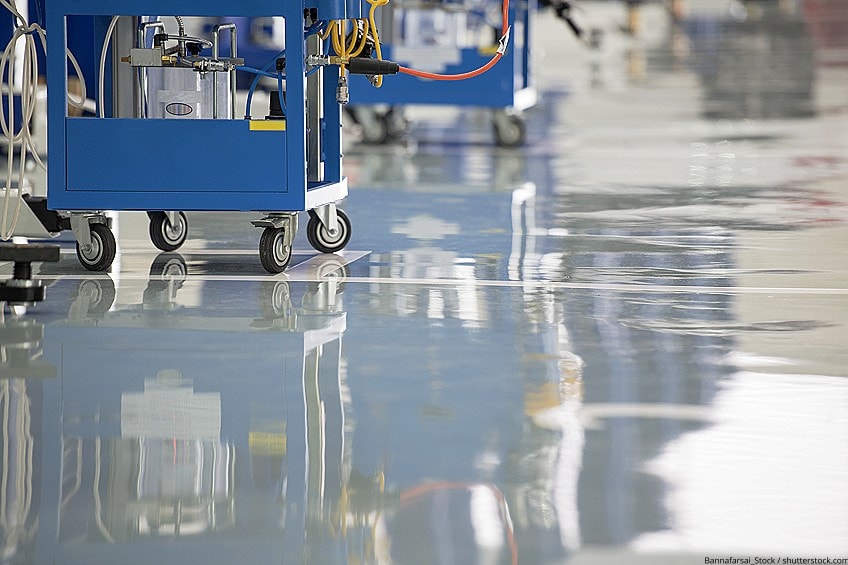
Frequently Asked Questions
Can I Put Bleach on Epoxy Floors?
You do not have to use a strong cleaner to clean epoxy floors. You should refrain from using any harsh chemicals like ammonia or bleach on your epoxy floors. Also, note that mops that are made of natural fibers tend to leave pieces of fiber which can then stick to the epoxy coating.
Does Epoxy Coating Normally Peel or Chip?
If your epoxy floor coating has been correctly installed and is an industrial-strength epoxy, you would not experience any peeling or chips. You will be able to get a lifetime warranty for epoxy floors that are for residential use if a high-quality epoxy has been used and installed correctly. For commercial use, you would be able to get up to a two year warranty.
How Do You Fix a Scratched Epoxy Floor?
Using a lint-free cloth, place a small amount of furnishing polish in the middle of the cloth. You can then apply the polish onto any light scratches that may appear on the epoxy. Ensure that you distribute the polish evenly, using small circles. The scratches will eventually begin to fade into the epoxy.
Larissa Meyer is a 32-year-old mother from Michigan and creative spirit since childhood. Her passion for painting and drawing has led her to an education as an illustrator and a career as a freelance graphic designer. She has a Bachelor of Fine Arts in Illustration and a degree in Graphic Design. Larissa is a talented artist who is able to master a wide range of styles and techniques to bring her artistic vision to life. Her greatest passion is currently fluid painting and epoxy resin art. As a mom of two kids, Larissa also understands the importance of fostering creativity in early childhood. She uses her experience and knowledge to help other parents inspire their children and develop their artistic skills as well.
Learn all about Larissa Meyer and Fluid Painting.

